Intro
Learn Tubal Ectopic Pregnancy Symptoms, causes, and treatment. Identify warning signs like abdominal pain, vaginal bleeding, and dizziness, and understand related conditions like ectopic rupture and miscarriage.
The issue of ectopic pregnancy is a serious concern for many women, particularly those who are trying to conceive or have experienced difficulties with their reproductive health. One specific type of ectopic pregnancy is the tubal ectopic pregnancy, which occurs when a fertilized egg implants in the fallopian tube instead of the uterus. Understanding the symptoms of tubal ectopic pregnancy is crucial for early detection and treatment, as it can be life-threatening if left untreated. Women who have experienced ectopic pregnancies or have risk factors such as pelvic inflammatory disease, endometriosis, or previous tubal surgery are more likely to be affected.
The importance of recognizing tubal ectopic pregnancy symptoms cannot be overstated, as prompt medical attention can significantly improve outcomes. In fact, according to the American College of Obstetricians and Gynecologists (ACOG), ectopic pregnancy is a leading cause of maternal mortality in the first trimester. Furthermore, the risk of ectopic pregnancy is higher in women who have undergone assisted reproductive technology (ART) such as in vitro fertilization (IVF). Therefore, it is essential to educate women about the warning signs and risk factors associated with tubal ectopic pregnancy.
Tubal ectopic pregnancy can be asymptomatic in its early stages, making it challenging to diagnose. However, as the embryo grows, women may start to experience a range of symptoms, including abdominal pain, vaginal bleeding, and shoulder pain. These symptoms can be mild or severe and may resemble those of a normal pregnancy or other conditions such as appendicitis or ovarian cysts. It is crucial for women to seek medical attention immediately if they experience any unusual symptoms, especially if they have a history of ectopic pregnancy or risk factors.
Tubal Ectopic Pregnancy Causes and Risk Factors
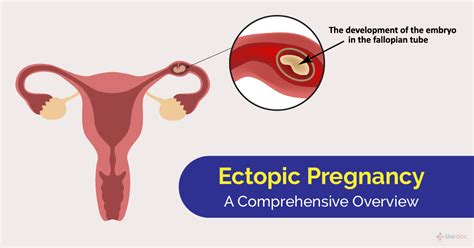
Common Causes of Tubal Ectopic Pregnancy
Some of the common causes of tubal ectopic pregnancy include: * Damage to the fallopian tubes due to surgery, infection, or inflammation * Hormonal imbalances, such as those caused by polycystic ovary syndrome (PCOS) * Genetic factors, such as a family history of ectopic pregnancy * Previous ectopic pregnancy or miscarriage * Assisted reproductive technology (ART) such as IVFTubal Ectopic Pregnancy Symptoms and Diagnosis
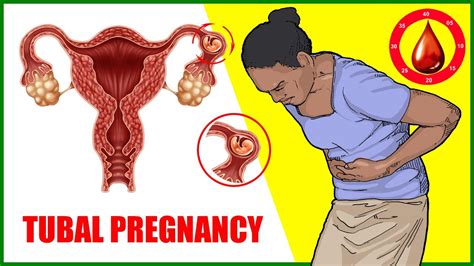
Common Symptoms of Tubal Ectopic Pregnancy
Some of the common symptoms of tubal ectopic pregnancy include: * Abdominal pain, which can be mild or severe * Vaginal bleeding, which can be light or heavy * Shoulder pain, which can be a sign of internal bleeding * Nausea and vomiting * Dizziness and fainting * Pelvic pain, which can be a sign of fallopian tube ruptureTubal Ectopic Pregnancy Treatment Options
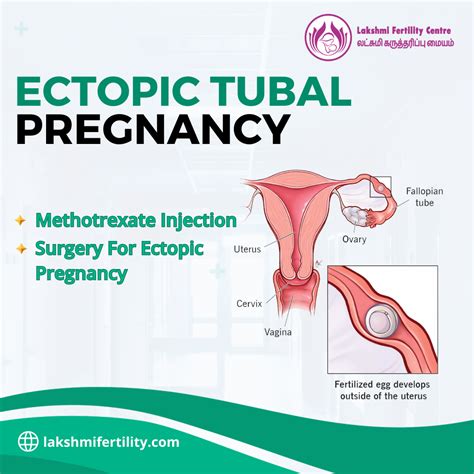
Treatment Options for Tubal Ectopic Pregnancy
Some of the treatment options for tubal ectopic pregnancy include: * Expectant management, where the woman is closely monitored for any changes in her condition * Medical management, where medication is used to stop the growth of the embryo * Surgical intervention, such as laparoscopic surgery or open surgery * Emergency surgery, which may be necessary in cases of severe bleeding or fallopian tube rupturePreventing Tubal Ectopic Pregnancy
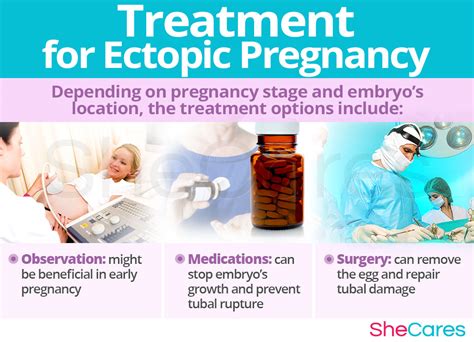
Ways to Reduce the Risk of Tubal Ectopic Pregnancy
Some of the ways to reduce the risk of tubal ectopic pregnancy include: * Practicing safe sex, such as using condoms or other forms of birth control * Avoiding smoking and illicit drug use * Seeking early medical attention if unusual symptoms occur * Getting regular check-ups with a healthcare provider * Maintaining a healthy weight and dietTubal Ectopic Pregnancy and Fertility
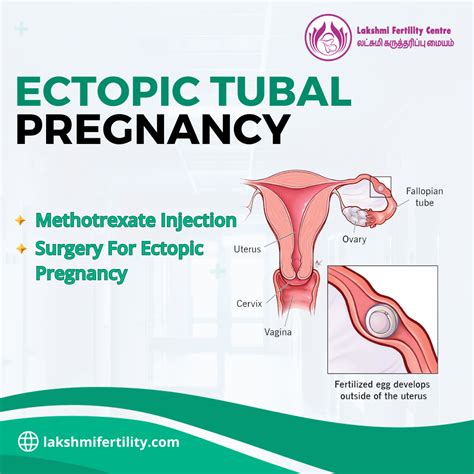
Impact of Tubal Ectopic Pregnancy on Fertility
Some of the ways that tubal ectopic pregnancy can affect fertility include: * Damage to the fallopian tube, which can reduce the chances of conception * Removal of the fallopian tube, which can eliminate the possibility of natural conception * Increased risk of future ectopic pregnancies * Emotional and psychological trauma, which can affect a woman's desire to conceiveTubal Ectopic Pregnancy and Emotional Well-being
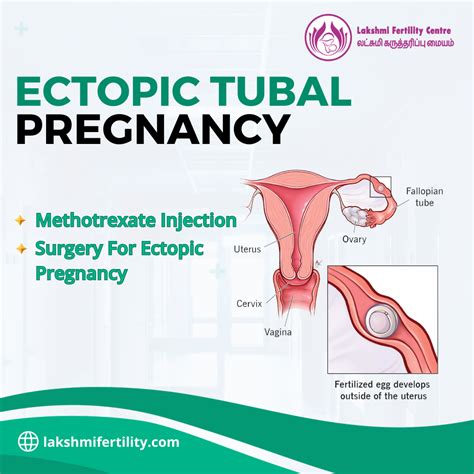
Ways to Cope with the Emotional Impact of Tubal Ectopic Pregnancy
Some of the ways to cope with the emotional impact of tubal ectopic pregnancy include: * Seeking support from a mental health professional * Talking to friends and family about feelings and emotions * Joining a support group for women who have experienced ectopic pregnancy * Practicing self-care and stress-reducing techniques, such as meditation and yogaTubal Ectopic Pregnancy and Future Pregnancies
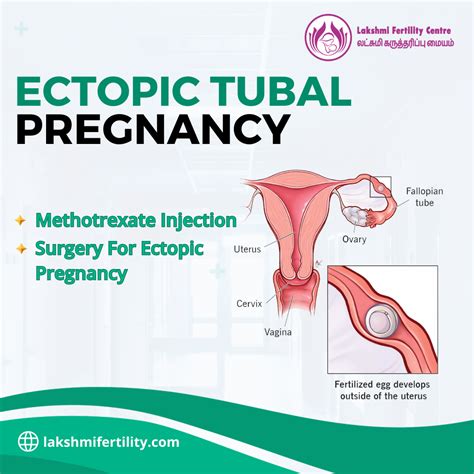
Planning for Future Pregnancies after Tubal Ectopic Pregnancy
Some of the steps to take when planning for future pregnancies after tubal ectopic pregnancy include: * Working closely with a healthcare provider to develop a plan for future pregnancies * Monitoring reproductive health and seeking regular check-ups * Practicing safe sex and using birth control to prevent unintended pregnancies * Considering reproductive options, such as IVF or surrogacy, if natural conception is not possibleWhat are the symptoms of tubal ectopic pregnancy?
+The symptoms of tubal ectopic pregnancy can include abdominal pain, vaginal bleeding, and shoulder pain. Women may also experience other symptoms such as nausea, vomiting, and dizziness.
What are the risk factors for tubal ectopic pregnancy?
+The risk factors for tubal ectopic pregnancy include damage to the fallopian tubes, hormonal imbalances, and genetic factors. Women who have undergone tubal ligation or have a history of pelvic surgery are also at higher risk.
How is tubal ectopic pregnancy diagnosed?
+Tubal ectopic pregnancy is typically diagnosed using a combination of physical examination, ultrasound, and blood tests. A healthcare provider may also perform a laparoscopy to confirm the diagnosis.
What are the treatment options for tubal ectopic pregnancy?
+The treatment options for tubal ectopic pregnancy depend on the severity of the condition and the overall health of the woman. Treatment may involve expectant management, medical management, or surgical intervention.
Can I still get pregnant after having a tubal ectopic pregnancy?
+Yes, it is possible to get pregnant after having a tubal ectopic pregnancy. However, the risk of future ectopic pregnancies is higher, and women should work closely with their healthcare provider to develop a plan for future pregnancies.
In conclusion, tubal ectopic pregnancy is a serious condition that requires prompt medical attention. Understanding the symptoms, causes, and risk factors can help women take preventive measures and seek early treatment. By working closely with their healthcare provider and seeking support from loved ones, women can navigate the challenges of tubal ectopic pregnancy and go on to have healthy, successful pregnancies in the future. We invite you to share your thoughts and experiences with tubal ectopic pregnancy in the comments below, and to share this article with anyone who may be affected by this condition. Together, we can raise awareness and support for women's reproductive health.
